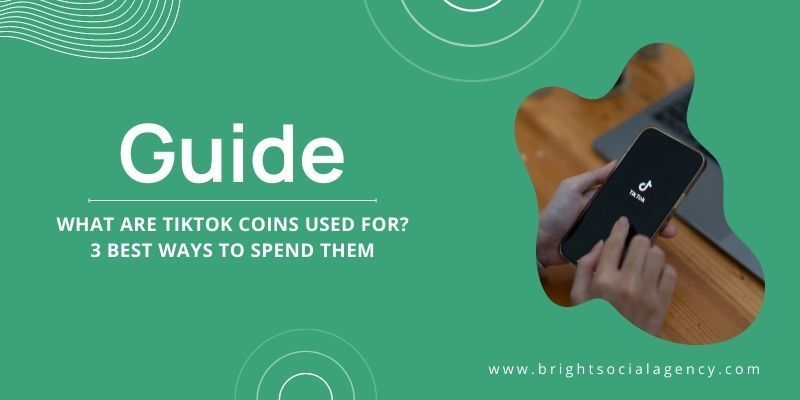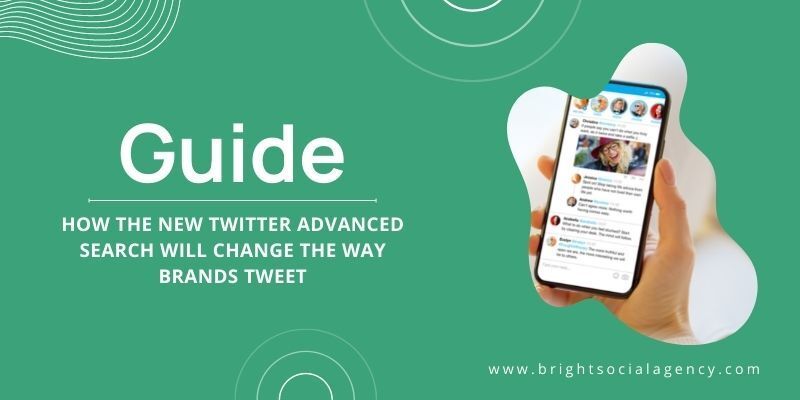Astroturfing, Influencers, and Sponsored Content. Oh My!
What is Astroturfing?
Astroturfing is a manufactured impression of grassroots support for a policy, individual, or product. The term "astroturfing" is derived from the AstroTurf brand of synthetic carpeting designed to resemble natural grass. Astroturfers use multiple online identities and fake pressure groups to make the public believe their position is the commonly held view.
Although it is commonly thought that the practice of letter-writing began with the invention of the internet, it can actually be traced back to newspaper editors who first invented the letters page. When you read a local newspaper at the time of an election, you will likely see multiple letters from concerned residents of X objecting to the disastrous policies of Y.
Astroturfing is a deceptive tactic used by individuals with personal agendas or by large organizations funded by corporations, lobbyists, labor unions, nonprofits, or activist organizations. In contrast to grassroots movements, which are generated spontaneously and reflect authentic engagement by people who have organized on their own, astroturfing campaigns do not represent a genuine expression of public sentiment.
Where does Astroturfing show up in history?
"Generally understood, astroturfing is comprised of “political actions masquerading as grassroots efforts” (Lee 2010,p. 73). However, the first inklings of astroturfing emerged in the early twentieth century. Around 1910, one of the early versions of an astroturfing-like campaign promoted drinking water from disposable paper cups rather than sharing cups. Some of the reasons that were cited for pushing this change were enveloped in a health and hygiene narrative. At the time, other campaigns were launched as well to reeducate consumers and redirect their behavior to switch to paper cups. However, the peculiarity of this entire effort was that the publisher of the campaign flyer The Cup-Campaigner was no other than Hugh Moore, a co-founder of the Public Vendor Company, which would later become the Dixie Cup Company (Lee 2010). In addition, Moore distributed materials with specific instructions on how to influence your local politicians to support this effort. These were the beginnings of the product-boycotting movement that supports specific causes; a tool that has become, nowadays, one of the most widely used approaches in American politics to encourage change (Lee 2010). This approach allowed, mostly, wealthy capitalists and corporate titans to further their interests with the help of the public...
Examples of astroturfing campaigns can be found in the tobacco industry (Apollonio and Bero 2007; Tsoukalas and Glantz 2003) to, for instance, discredit the effects of second-hand smoke or in the pharmaceutical industry to challenge animal rights groups that are against animal drug testing. In a more concrete astroturfing example, a grassroots campaign called People of the West! supports western communities and receives a lot of its funding from corporate sponsors, some of whom have a strong interest in keeping alive the General Mining Act of 1872—The Act allows corporations to purchase and mine public lands for $5 per acre (Lyon and Maxwell 2004). In another tangible astroturfing example, IBM openly encouraged its employees to blog in favor of the company and against competitors (Cox et al. 2008). Mustafaraj and Metaxas (2010) found evidence of online astroturfing via Twitter during the Massachusetts senate race between Martha Coakley and Scott Brown." (source)
"There are estimations that as much as one third of online consumer reviews on the internet are fake. It’s common knowledge that a significant portion of Amazon reviews are false, and the same is likely true for Google, the Apple app store, and other platforms with similar rating systems.
But consumer reviews are just the tip of the iceberg. The reality of corporate astroturfing goes much deeper, to the point where by the nature of it, it becomes impossible to tell whether there was ever an astroturfing effort to begin with." (source)
"Astroturfing is the attempt to create an impression of widespread grassroots support for a policy, individual, or product, where little such support exists. Multiple online identities and fake pressure groups are used to mislead the public into believing that the position of the astroturfer is the commonly held view.
Although usually associated with the internet, the practice has been widespread ever since newspaper editors first invented the letters page. Pick up any local paper around the time of an election and you will find multiple letters from "concerned residents of X" objecting to the disastrous policies of Y. Similarly, concerned residents often turn up on talk radio shows and even in campaign literature...
To overcome these dangers, most astroturfing now takes place on the forums and comment sections of blogs and newspaper websites. Here, individual astroturfers can leave comments under numerous identities with little fear of discovery. Discovery does occur, however, and in 2008 one member of Boris Johnson's campaign team was caught posting comments on blogs critical of his boss without sufficiently concealing their identity. A few years later, another member of Johnson's campaign was found posing as a concerned Labour supporter trying to prevent Ken Livingstone from being the party's candidate for mayor." (source)
Published in the Guardian NINE YEARS AGO (imagine how much has changed in the tech space since then)...
What are the latest astroturfing trends?
"None of these British examples comes close to the sort of operation seen in Russia. New forms of software enable any organisation with the funds and the know-how to conduct astroturfing on a far bigger scale than even the Kremlin could hope for. As reported by the Guardian, some big companies now use sophisticated "persona management software" to create armies of virtual astroturfers, complete with fake IP addresses, non-political interests and online histories. Authentic-looking profiles are generated automatically and developed for months or years before being brought into use for a political or corporate campaign. As the software improves, these astroturf armies will become increasingly difficult to spot, and the future of open debate online could become increasingly perilous." (source)
Why is this happening?
New tools for astroturfers are both a response and a result of the openness inherent in online communications. Twitter and blogging have given a voice to millions of people who would otherwise be unable to reach the masses, providing a platform for genuine opposition movements to take their cases directly to the public. While censorship of these movements has not always proved effective, only authoritarian governments will implement it.
For big business and less repressive governments, simply crowding out dissenting voices online must seem a far more attractive prospect.
Different Forms of Astroturfing and Examples
The first political astroturfing efforts were letter-writing campaigns, such as that credited to Sen. Bentsen in 1985. In such campaigns, paid individuals flood elected representatives with letters from people who are not actually their constituents and make it seem like there is widespread support for their cause.
The increasing sophistication of forms of astroturfing is due to the growth of the internet, identity masking software, and online crowdsourcing, along with a general increase in the public’s interest in government and social reforms.
- Front Groups
Front groups are organizations that claim to be nonpolitical voluntary associations or charities, but they represent a secret organization's interests. Front groups appear to be grassroots movements, but they're funded by political groups, corporations, labor associations, or public relations firms.
Front groups are one of the most easily exposed forms of corporate astroturfing. They are designed to look like independent organizations and are often created by PR firms, lobbying firms, or corporate interests.
For example, the National Smoker's Alliance was formed in 1993 to oppose anti-smoking legislation in the U.S. Congress. When the National Smokers Alliance (NSA) presented itself as a grassroots organization of private citizens concerned for the rights of adult smokers, it was exposed as a public relations group created, funded, and operated by tobacco industry giant Philip Morris.
- Sockpuppeting
In politics and public policy, sockpuppeting is concealing your identity by creating fake online identities to give the impression of broad support for or opposition against a particular candidate, cause, or organization. In internet-based astroturfing campaigns, a third party poses as an independent blogger on blogs and websites while being secretly funded by another entity. Paid sock puppeteers can create and post as multiple unrelated identities through persona management software.
In 2011, for example, the United States Central Command paid a California company $2.76 million to create fake online personas to influence net conversations in Western Asian languages, including Arabic, Persian, Urdu, and Pashto. On September 11, 2014, people on Twitter reported a major explosion at a chemical plant in Louisiana that caused extensive damage to the facility.
U.S. intelligence authorities revealed that the posts were part of a Russian government-sponsored campaign to sow discord by using fake social media accounts. In 2016, the U.S. intelligence authority claimed to have found evidence that Russia had manipulated public opinion during the presidential election by using paid sockpuppets to support Donald Trump's candidacy.
Is Astroturfing Wrong?
Astroturfing is a bad thing, and it's wrong for two reasons.
First, it's unethical. In astroturfing, people are paid to post fake comments on blogs and news articles in order to sway public opinion. It's a form of fake news that has been used by companies, politicians, and other entities who want to make themselves look better than they really are. The problem with this is that if people don't know paid actors are manipulating them, they may be more likely to trust whatever they're saying. And this trust could lead to them making decisions that negatively impact their lives.
Second, astroturfing makes it harder for legitimate grassroots movements to gain traction online because these campaigns tend to be smaller and less organized than those backed by large corporations or political parties. When astroturfers flood online spaces with false information and paid trolls, it can be impossible for these real grassroots causes to get their message across effectively—even if their message is worth hearing!
Consequences of Astroturfing: Why This Practice Should Be Avoided
The practice of Astroturfing is controversial and often discouraged or disparaged. While most forms of online content are created to engage with the public, manufactured memes often cross the line and are viewed as astroturfing by an uninvolved audience. An online business that gets caught astroturfing will suffer embarrassment and possibly damage its public relations if people find out.
In addition, many Western nations have laws regulating overt and especially deceptive forms of astroturfing. For example, both the United States and the European Union require bloggers and social media authors to disclose their financial relationships with companies whose products they promote.
Due to the prevalence of astroturfing, some forms of online reviews are now considered untrustworthy. Astroturfing is unnecessary where effective marketing, quality products and services, and customer satisfaction are in place. If a company is found to be astroturfing its customers, it risks losing credibility and may even face legal action.
What is Sponsored Content?
"Coordinated networks of social media influencers, especially small-scale influencers with fewer than 10,000 followers, are now a powerful asset for political campaigns, PACs, and special interest groups. Partisan organizations are leveraging these “authentic” accounts in bids to sway political discourse and decision-making in the run up to the 2020 U.S. elections. Political marketers tell us that they see influencers, particularly those with more intimate followings, as regarded as more trustworthy by their followers and therefore better positioned to change their behavior. Groups on both sides of the aisle are paying influencers to promote their causes. Many influencers don’t reveal they’ve been paid, and payments often take place off social media platforms. This amounts to a new and growing form of ‘inorganic’ information operations—elite-dictated propaganda through trusted social media spokespersons. What is more, top-down propaganda from influencers are better able to evade detection systems built to detect political bots and sockpuppets and to defy regulators concerned with digital free speech—all while using influencers’ captive audiences to more effectively prey upon fraught emotions during a highly contentious election. Such influencers, far from being “volunteer digital door knockers,” are paid, highly organized surrogates of political campaigns failing to report this new mode of politicking. Social media firms and governments face serious challenges ahead in dealing with this new form of digital propaganda. The propaganda research team at the Center for Media Engagement notes these challenges and offers cursory solutions." (source)
What's the main difference in how the two parties leveraged influencers? Democrats rarely tap into niche influencers, preferring to go with celebrity icons and guest appearances by candidates, and when employing influencers Democrats controlled the message that their influencers shared. In working on past influencer partnerships, I know this is going to gain a little lift on your campaign KPI's but unless you allow the influencer to write their own sponsored content, your ROI for that paid partnership is going to be low. This is in a huge contrast where Republicans are eager to employ micro-niche influencers and celebrity/high profile influencers alike. The next part is crucial in that Republicans allow their influencers to write their own posts, scripts, and paid endorsements - which when shared across their target market allows each member to add their own slant to the message and often will have the racist, bigoted, hateful messaging or undertones and continue to allow some Republicans to dogwhistle their racism instead of saying it outright. In a move of liability, the message is on the microinfluencer (who should be disclosing their paid partnership per FTC guidelines, but mostly aren't).
"Across the aisle, Republican groups appear to understand the utility of influencers. According to one politically agnostic influencer firm we spoke to, the Republican campaigns that approached them demonstrated a better grasp of how the influencer platforms could be used to mobilize hyper-specific audiences, as opposed to simply partnering with well-known influencers, as their Democratic counterparts were doing.28 The GOP has equipped “Rising Stars” with social media training and invited young, minority influencers to the RNC headquarters to discuss how to influence conversations in their local communities.29 Without apparent GOP oversight, there are also collections of influencers who have gathered into “hype houses” on TikTok. They have large-scale reach: the Conservative Hype House has 1.5 million followers and the Republican Hype House has nearly 900,000.30 Coordinated with greater GOP guidance, the conservative youth group Turning Point USA has a well-established Influencer Media Program with a reported 260 influencers who have an average following of 170,000 people.31 An affiliate, Turning Point Action, was recently found to be operating an influence operation described as “among the most ambitious domestic influence campaigns discovered this election cycle.”32 Operating through an external digital marketing firm, Turning Point Action paid individuals, including minors, to use their personal accounts to spread coordinated content without disclosing their affiliation or payment. Thousands of posts, replies, and comments across Facebook, Twitter, and Instagram were found, some of which used identical language. The coordinated content spread false information about COVID-19 and mail-in ballot fraud, sought to discredit mainstream media, implicate Joe Biden, and promote Republican candidates.33 Due to evidence of coordination, particularly comments replicated en masse, Facebook and Twitter removed several accounts for violating manipulation and spam policies.34" (source)
Why is sponsored content a popular form of marketing?
- Sponsored content can increase your brand's credibility and trustworthiness by placing it alongside other things that viewers enjoy.
- Sponsored content enhances the user experience rather than distracting it.
- Sponsored content is one of the few ways to pay for exposure without interrupting people, but it's important to consider how different types of paid media will affect your message.
- Sponsored content can take many forms, and it doesn't have to be restricted to the same media types.
- Sponsored content is a win-win relationship – a content creator (with an audience) gets funding, and a product creator (who needs an audience to acquire customers) gets an audience.
Pros and Cons of Sponsored Content
Sponsored content has the following benefits:
- You can gain credibility and trustworthiness from a viewer by showing your logo alongside other things the viewer enjoys.
- It improves the user experience and doesn't interrupt it as regular advertising posts do.
- Sponsored content can appear in any format or media, which makes it a flexible marketing tool.
- It benefits both parties, which can expand their subscriber bases by working together.
Sponsored content has the following drawbacks:
- The nature of social media platforms, along with laws in some countries, require that sponsored content be clearly marked, so the corresponding mark may detract from the overall nativity of an image.
- Some users have negative expectations about the quality of paid content.
- Sponsored content that is irrelevant to the user experience can disrupt the user experience and lead to negative feedback, which can ultimately increase unsubscribe rates, harming your reputation.
What is Native Advertising?
For sale: The front page of the internet
"Perhaps you’ve heard of Reddit, the self-styled 'Front Page of the Internet'. It’s a social media platform that consists of a network of user-created news, content, and discussion forums called ‘subreddits’, the users of which are called ‘Redditors’.
It works by aggregating content that is both created by and then voted on by users, the most popular content of which is then displayed at the top of the subreddit it was posted in. If a post becomes popular enough it can reach the ‘front page’, which displays the most popular posts across the whole website within a given timeframe.
Reddit is different than most other ‘connection-based’ platforms such as Facebook, Instagram, or Twitter, in that users are connected through the communities they’re active in rather than through a process of ‘friending’ or following other profiles. With roughly 330 million users, Reddit is a similar size to Twitter, and ranks as the 18th most visited website globally. And, like any social media platform of its calibre, it also has a serious astroturfing problem.
It’s a bit oxymoronic, really. Because of its young demographic and user-curated ethos, the Reddit community (if you can put 330 million people in a box) is described as being comprised of generally privacy conscious people who dislike being manipulated by brands or overtly advertised to. At the same time, the voting system is easily exploited. With a bit of forethought, a halfway decent marketing team can not only get a disguised advertisement to the front page where it will be seen by millions, but create a trend that can take on a life of its own." (source)
"Of course, Reddit has measures in place to combat astroturfing and botting. Communities won’t let you post in them until you’ve amassed a certain amount of ‘karma’, which is a rough sum of the voting other users have done on your posts and comments. Unfortunately, this only stops the laziest of astroturfing attempts, because there are plenty of services that sell pre-aged accounts so as to avoid suspicion from moderators and users alike.
The above video explains how easy it is buy a pre-aged account and game the Reddit algorithm – so, if a couple of guys with a shoestring budget were able to get a fake news story to the front page of an influential subreddit, just imagine how simple it must be for a corporation." (source)
Norm Shifting: Increasing Politicization and Extremism on Social Media Platforms
"Echoed across interviews was the sentiment that there has been a distinct shift in Instagram’s influencer culture over the last year. With the murder of George Floyd and subsequent protests, the COVID-19 pandemic, and the spread of QAnon, influencers have begun to post content that would have previously been considered too controversial. Our research identified three main motivations behind this shift in influencer postings: the desire to use platforms for political activism, changes in audience expectations, and the incentivization of posting political content due to increased follower engagement." (source)
"Motivation: Personal Political Activism
In the words of one influencer we interviewed: “My whole thing was that I wanted to spread a message that was meaningful. I wanted to make a difference in society, one way or another. I didn’t feel like I was doing enough.” The current influx of personally motivated political activism is causing ripple effects throughout the social media landscape, provoking and inspiring others, and, subsequently, establishing an expectation of political discourse. While this type of content may invigorate the influencer’s audience, it can also, conversely, invigorate those in opposition. One popular conservative influencer we spoke with told us that their primary motivation for becoming a partisan influencer was the activity they saw on social media during police protests in the wake of the murder of George Floyd: “The main catalyst for me to start making content was after I saw people, you know, burning flags, stepping on flags, it kind of brought out this passion that was lost.” Once the apolitical norm of Instagram was broken en masse—arguably by the controversial “Blackout Tuesday” meme accompanied by Black Lives Matter hashtags37—political posts have bred political posts, regardless of whether they are authentic or performative." (source)
"Motivation: Audience Expectations
According to those we spoke with, a main driving factor for influencers to post this new kind of politically-charged content is a general change in audience demand. Since influencers operate in an engagement-driven system, when their audiences expect them to speak about social issues, the influencers have to respond. In the words of one influencer platform executive: “It’s become a place where influencers are expected to say something, and they are expected to be on the right side of history if they want to continue to operate their businesses.” Especially for nano-influencers, whose audiences are smaller and highly engaged, these kinds of posts in support of a social movement can become a price of doing business. In the past, such posts may have been decried as “armchair activism” or “slacktivism,” but now, authentic or performative, they are expected." (source)
"Motivation: Increased Engagement and Followers
Social media platforms have long been fertile ground for the spread of conspiracy theories and, in 2020, countless “mainstream” influencers, from fitness gurus to beauty bloggers, have joined the ranks of those spreading the content. A prime example is QAnon, a conspiracy theory that came out of the fringe message board site 4chan in 2017.38 The conspiracy theory alleges that Donald Trump is defending the world against a large network of satanic elites who are running a global child-trafficking operation. QAnon has found its way into mainstream platforms through the co-option of existing social causes like the anti-vaccination and anti-child-trafficking movements.39 Using language like “#savethechildren,” many QAnon posts appear innocuous upon first glance—moms speaking out against child abuse and sex-trafficking—but the posts are often also tagged with hashtags like #thegreatawakening and #wwg1wga, which lead followers to more radical conspiratorial content. QAnon followers are extremely active, and these hashtags also help them, and QAnon automated “bot” accounts,40 to “signal boost” to other members, which leads to masses of comments, likes, and reshares of the content. Posts often encourage people to do their own research into topics, and even suggest what web browser to use to do so, giving preference to those which index alternative news sources higher in the search results.41" (source)
"Influencer culture that thrives on authenticity and being an individual fits well with these kinds of messages that encourage individuality in pursuit of the truth (e.g. questioning mainstream media, the government, and academia).42 Posts focused on rescuing children and other QAnon adjacent talking points also represent a “watered-down” version of the core QAnon content, enabling it to be more palatable and sharable for ordinary people, and shifting the norms regarding acceptable discourse.43 QAnon is no longer a fringe theory; 2 out of 10 Americans think it is “very good” or “somewhat good” for the country, and 4 in 10 Republicans believe the same.44 From our interviews, it appears to be an established tactic for influencers to capitalize on QAnon to get a boost in followers and engagement, even if the engagement isn’t sustained.45 A recent study of climate change deniers found that they have begun to use QAnon hashtags and post QAnon content, gaining a marked increase in engagement.46 "(source)
The Ethics of Mobilizing Political Influencers
"Is coordinating networks of influencers to share political content ethical? On the one hand, some argue that it is no different than conventional volunteer work. In the words of one strategist, “This is digital door-knocking, I think of this as e-canvassing.” However, there are three key differences: (1) scale of reach, (2) influencers’ relationships with their audiences, and (3) disclosure and transparency regarding coordination. Influencers differ from canvassers because a single post can reach thousands of people in an instant versus the reach of a canvasser who is knocking on a single door or calling a single number at any given time. There is also a relational difference between a canvasser knocking on a stranger’s door and an influencer whose audience has a relationship with them, perceived or otherwise. Lastly, canvassers gain trust by affiliating with a campaign so they are willing to disclose, while influencers gain trust by remaining “authentic.” Lack of disclosure regarding payment or affiliation make it extremely difficult to assess coordination, enabling secretive political groups, dark money,55 and foreign actors to potentially sway masses of unsuspecting voters through the voices of trusted friends and idols.
By focusing on disclosure, proponents of paid political influencers overlook the deeper issue of digital astroturfing—the coordination of accounts, deceptively seeking to mimic legitimate discourse.56 In recent years, social media bots were a primary method of artificially inflating a candidate’s popularity online,57 but as technologists have become more adept at detection, bot usage appears to be waning. User-generated content is both effective at swaying public opinion and creating the appearance of a groundswell of grassroots support. Coordinating real humans to post political content, although more time consuming, is also a tactic to avoid detection. As discussed prior, in the lead-up to the 2020 election, Turning Point Action reportedly paid teenagers in Arizona to reply to tweets posted by Democratic politicians and news organizations on Twitter in order to manipulate conversations on the platform.58 The teenagers, who were pulling approved messages from a shared document, did not disclose that they were working in coordination with a political group and several used pseudonyms. Notably, Turning Point Action claimed that this coordinated effort was “sincere political activism” that was pushed online due to COVID-19,59 echoing the justifications we heard from strategists coordinating political influencers on Instagram." (source)
CONCLUSION: Policy Solutions Stymied
"Influencers pose a threat to campaign transparency, accountability, and informational quality. Political influencer posts do not qualify for the stricter rules imposed by Instagram, Facebook, and Twitter on political advertising due to the fact that payment occurs off- platform. Without standardization of disclosure practices, differentiating between coordinated political campaigns and genuine grassroots political speech will continue to be difficult for the platforms. Furthermore, the Federal Elections Commission—which could change the legal requirements surrounding these kinds of political advertisements—once again finds itself without a quorum, leaving it powerless to act.60 The commission itself has also become increasingly polarized in recent years, and disclosure has become a party-line issue. Current rules regarding online political speech are “technology-neutral and platform- agnostic,” leaving social media platforms and campaigns to make up many of the policies themselves.61 The environment has been described by one former Federal Election Commissioner we interviewed as a place where bad actors “can just act with impunity, and there’s never going to be any enforcement.”
Lack of proper disclosure regulations leaves significant openings for dark money and foreign actors to fund influencer operations with little to no detection, threatening the security and integrity of elections in the United States and beyond. Russian influence operations in Africa have been testing tactics to spread disinformation by using local people instead of fake accounts to avoid detection of Facebook.62 As Facebook and Twitter focused more attention on foreign actors after the 2016 election, the Kremlin’s Internet Research Agency successfully targeted black Americans on Instagram by mimicking influencer behavior as a part of an orchestrated disinformation campaign in 2017.63
In order to combat the rise of political influencers, both the federal government and social media firms must act. While some precedents have been set for monitoring influencers paid for commercial purposes, the use of political influencers is different. Ultimately, the use of paid political influencers amounts to active, professional electioneering. It should be treated as such. Even when influencer groups are not paid to communicate by political groups, as seems to be the case with the “hype houses” mentioned earlier, they are often using inorganic organizing tactics in bids to game what social media firms prioritize in trends and recommendations. The use of broadscale coordination of influencers, particularly small-scale nano-influencers who are basically “regular” users, in efforts to dictate outcomes on digital systems amounts to computational propaganda by other means. Here, political groups may not be using bots or sockpuppets, but they are seeking similar outcomes." (source)
This post may contain affiliate links, which means that we may receive a commission if you make a purchase using these links.









